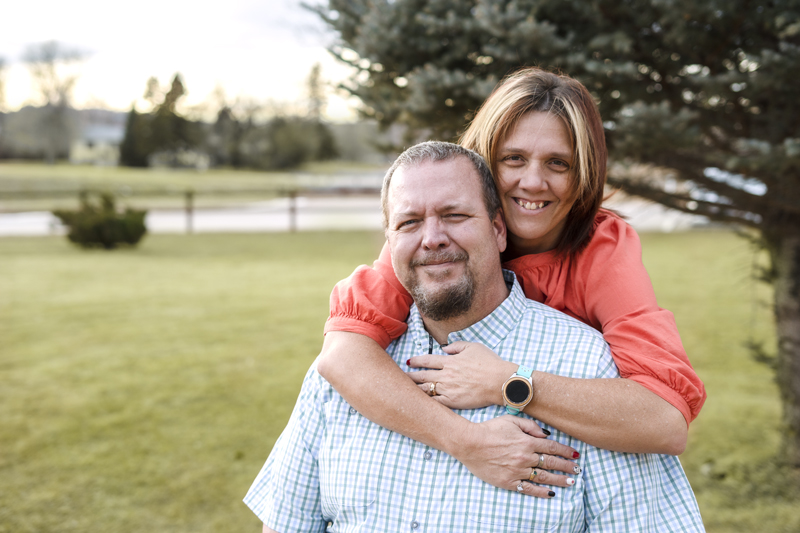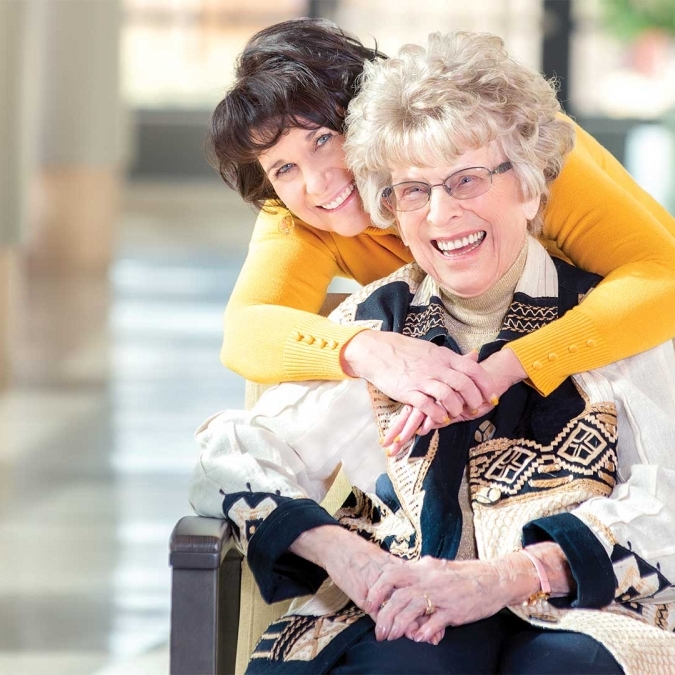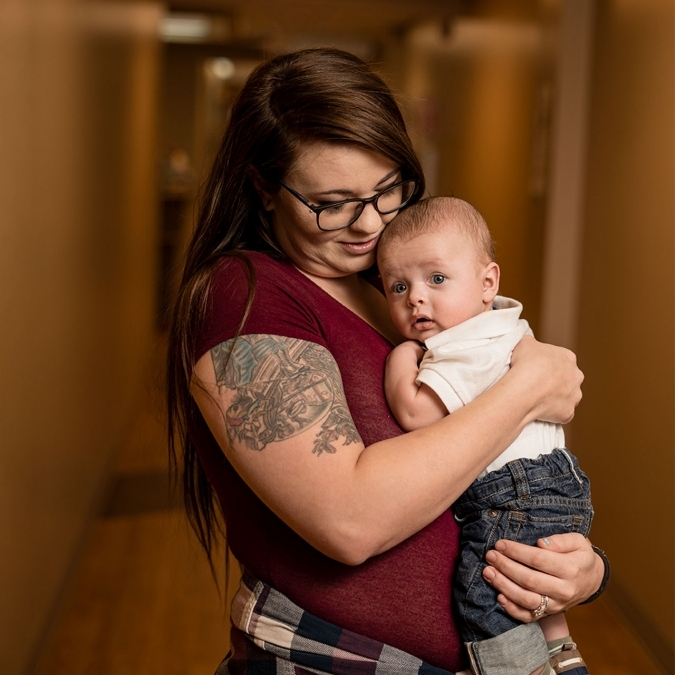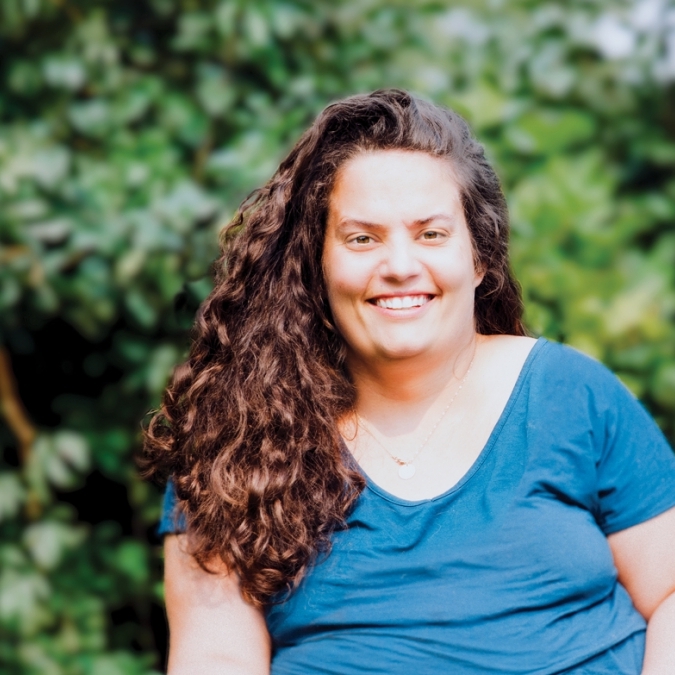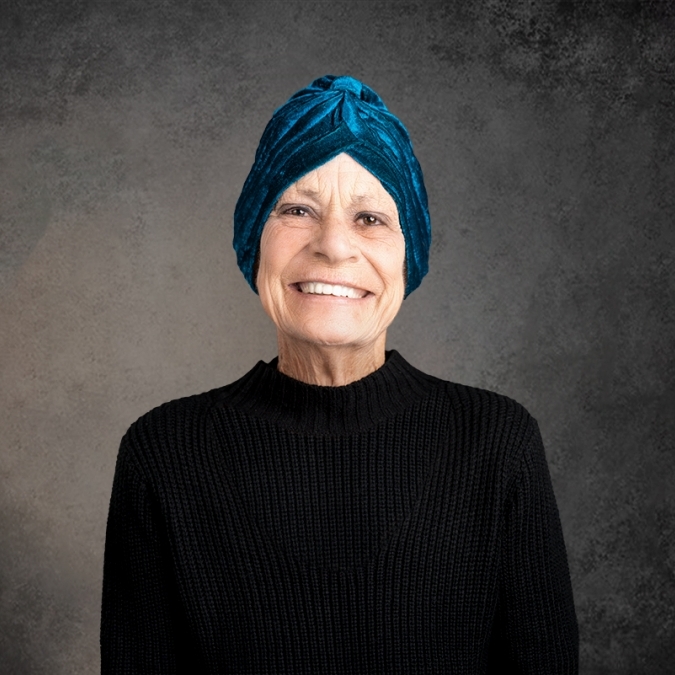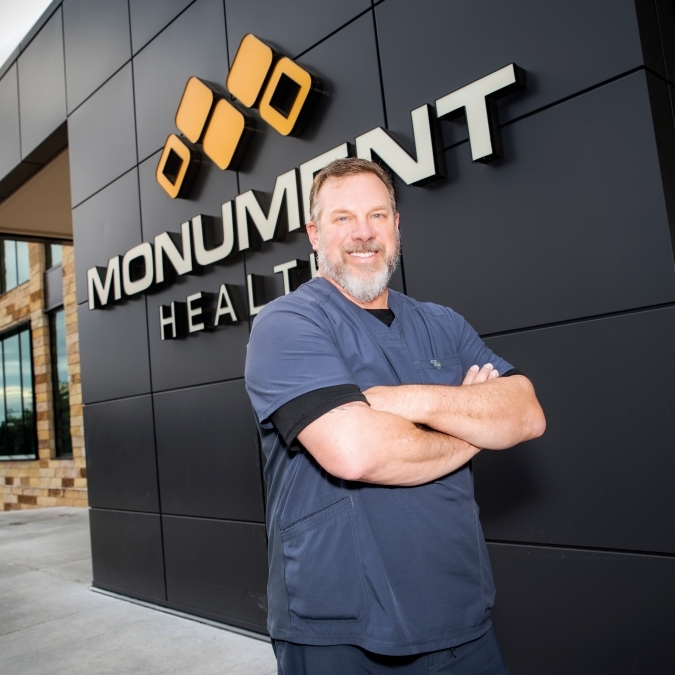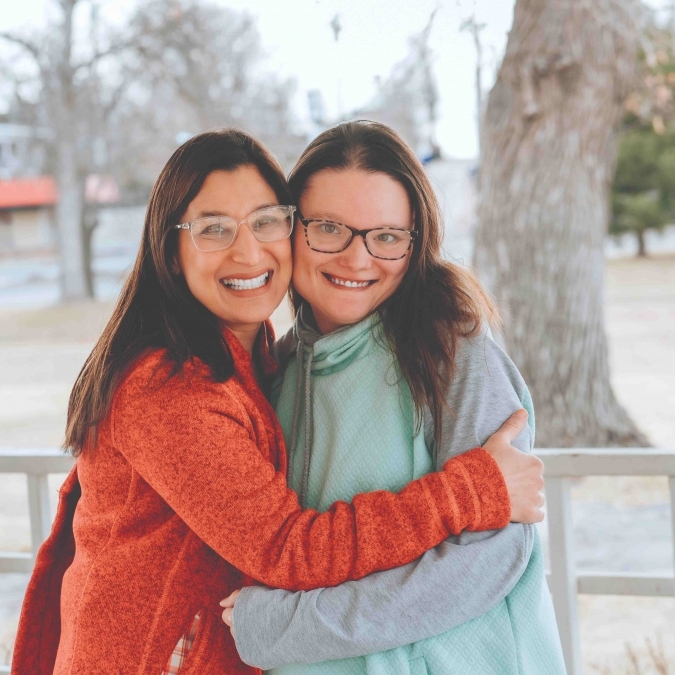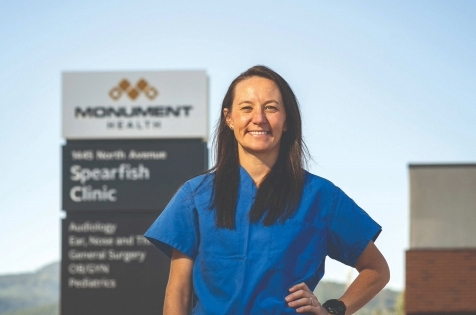David and Darlene Fickbohm have embarked on a journey together. Not to a destination, but rather to a healthier life. Both are Monument Health caregivers: Darlene is a Registered Nurse who works in Utilization Review at Rapid City Hospital, and her husband David works at Sturgis Hospital as a Maintenance Mechanic. And both are patients of General Surgeon Andrew VanOsdol, M.D, at Monument Health Bariatrics and Weight Management in Spearfish.
If you mention bariatrics, many people think about weight loss surgery. That’s only part of the story, though. When you look deeper, you’ll find that the goal of bariatrics isn’t simply to lose weight, but rather to develop a healthier lifestyle. Darlene and David know this from firsthand experience.
“A lot of people don’t understand the psychological side of eating and this process, but it’s hard on you when you change from eating one way to another. Like on Thanksgiving when everyone is enjoying a lot of stuff, or when you socialize at restaurants and you’re sitting there and not partaking in the same way as the people around you. There’s a big psychological factor there, so having that education from mental health professionals is great, and you can always go back for more sessions if you’re struggling. It’s also important to have that support from others as well, because you can’t do it alone. Darlene and I did this together, which I think has been one reason things have gone so well — we’re our own support group. But there are actual support groups for people who go through this process too,” David said.
Starting a journey
Darlene initially met with Dr. VanOsdol and the Bariatrics and Weight Management team in June 2020 to discuss problems with her gastrointestinal tract. She brought with her a long list of health issues including diabetes, but even prior to her appointment she was taking steps to improve her health. A few months prior to her initial appointment with Dr. VanOsdol, Darlene and David had transitioned to a vegan diet to help with her diabetes and digestion problems, and experienced some success with it. “I lost 30 pounds going vegan, and I already felt better,” says Darlene. “But I was still having some GI issues that I really wanted to resolve.”
This began the journey to a healthier lifestyle that Darlene and David would take together, but she hadn’t expected surgery to be part of that journey. The Fickbohms were no strangers to bariatric surgery — about a decade prior, David had a lap band and nissen fundoplication procedure for gastric reflux at another health care facility. He was never fully satisfied with the results, so it’s no surprise that Darlene didn’t necessarily plan on including bariatric surgery on her health journey. Dr. VanOsdol, however, felt that she would be a good candidate for a gastric sleeve.
“During a sleeve gastrectomy, we remove part of the patient’s stomach, creating a new smaller, sleeve-like stomach in the process. Digestion works exactly as it did before, but there are changes in horemones resulting in feeling less hungry and more satisfaction after eating less food,” explains Dr. VanOsdol. “I’m always cautious about recommending surgery, but Darlene was a good candidate because of the hard work she and David were already doing to improve their lifestyle.”
“There’s a misconception that weight loss means just eating less and exercising more. There’s more going on as far as metabolic rate and even your own body working against you. Surgery isn’t an easy way out; it requires a significant lifestyle change. The goal isn’t simply to lose weight; the goal is health, so we work on a weight management program that meets all the patient’s needs. That includes the emotional component. Most people know about emotional eating, but research has found links between trauma and obesity. Not everyone struggling with obesity has experienced trauma, but it shows the effect emotions can have on nutrition.”
Slow and steady
When she decided that she would get the gastric sleeve, Darlene learned that it would be six months to a year before the procedure would occur. “I had to see a nutritionist, I had to be evaluated by a mental health professional and I needed to see Dr. VanOsdol for so long and a certain number of times to get approved by insurance,” she says. “It’s a long process, not a quick fix.”
Darlene began showing signs of success after receiving her gastric sleeve, so her husband David decided to get one as well. Like Darlene, he was a good candidate for the procedure — they had made their diet and lifestyle changes as a family, so Dr. VanOsdol felt confident that he would be successful with it as well. After removing his lap band and nissen, Dr. VanOsdol performed the sleeve gastrectomy on David as well. Together, the Fickbohms have continued to lose weight and improve their overall health and lifestyle.
Often people think of bariatrics as just a surgery — and while for many patients a surgical procedure can be incredibly helpful, it’s never just a surgery. There are several caregivers involved with a successful bariatrics program, and they all contribute different skills and experience. “Lots of people tell us, ‘I know enough about nutrition, I just need to eat less,’ but
it isn’t just how much you eat, but also what nutrients you’re getting,” said Dr. VanOsdol. “When there’s any kind of deficiency in our nutrition, that’s when we start craving things and it becomes much harder to control.”
Monument Health Spearfish Hospital, home to the Bariatrics and Weight Management program, was recently designated a MBSAQIP Accredited Comprehensive Center by the Metabolic and Bariatric Surgery Accreditation and Quality Improvement Program, a national organization. MBSAQIP is a joint program of the American College of Surgeons (ACS) and the American Society for Metabolic and Bariatric Surgery (ASMBS). It affirms that the hospital’s bariatric patients receive multidisciplinary medical care, which improves patient outcomes and long-term success. In addition, accredited centers offer preoperative and postoperative care designed specifically for patients with obesity. Dr. VanOsdol says that this provides the program with additional resources within the ASMBS, and that programs that are accredited have better outcomes than programs that are not accredited. The accreditation process took several years, as all accredited centers are required to treat so many cases each year, as well as to meet specific follow-up requirements. Bariatric surgery is not just about the procedure: it’s also the patient care before and after the surgery.
Dr. VanOsdol adds, “Really, that’s something that our program does really well. Providing support outside of just the surgical part of the process, from nutrition to support groups. So in many ways, the accreditation process is making sure that we’re providing education for our nurses and that we are taking care of the whole patient rather than just operating. That has always been our approach, so this accreditation is a tribute to the hard work of the surgical staff and recognition of the great outcomes we’ve been able to achieve.”
Changing perspectives
Patients work with the entire team before a procedure is scheduled. Without these building blocks, any kind of bariatric surgery is unlikely to succeed. “It builds a mindset that changes your eating habits and lifestyle. It’s not just thinking, ‘Oh I’m going to lose the weight and I’ll be done.’ I think that’s where people run into trouble,” says Darlene. “It’s an entire lifestyle change — it’s not losing the weight or getting to the size you want and then just going back to what you were doing before. Because you’ll end up right back where you were.”
“It’s not something that you can do without support,” adds David. “I think a big part of why we’ve been successful is that we’ve done this together. We’re a team, and we’ve improved our lifestyle together.” As a family the Fickbohms continue to lead a healthy lifestyle. They’ve each lost about 100 pounds, and their son has come along on the journey as well, losing over 100 pounds through diet and exercise. Darlene no longer has to take medication for her diabetes, and has reduced the amount of medication she has to take for blood pressure. Most importantly, the entire family feels healthier and has more energy.
“That’s what it’s all about,” says Darlene. “Not just weight loss, but having a healthier, and more enjoyable lifestyle.”
Many people struggle to lose weight and keep it off. That’s why Monument Health caregivers approach weight loss with a whole-person approach.
